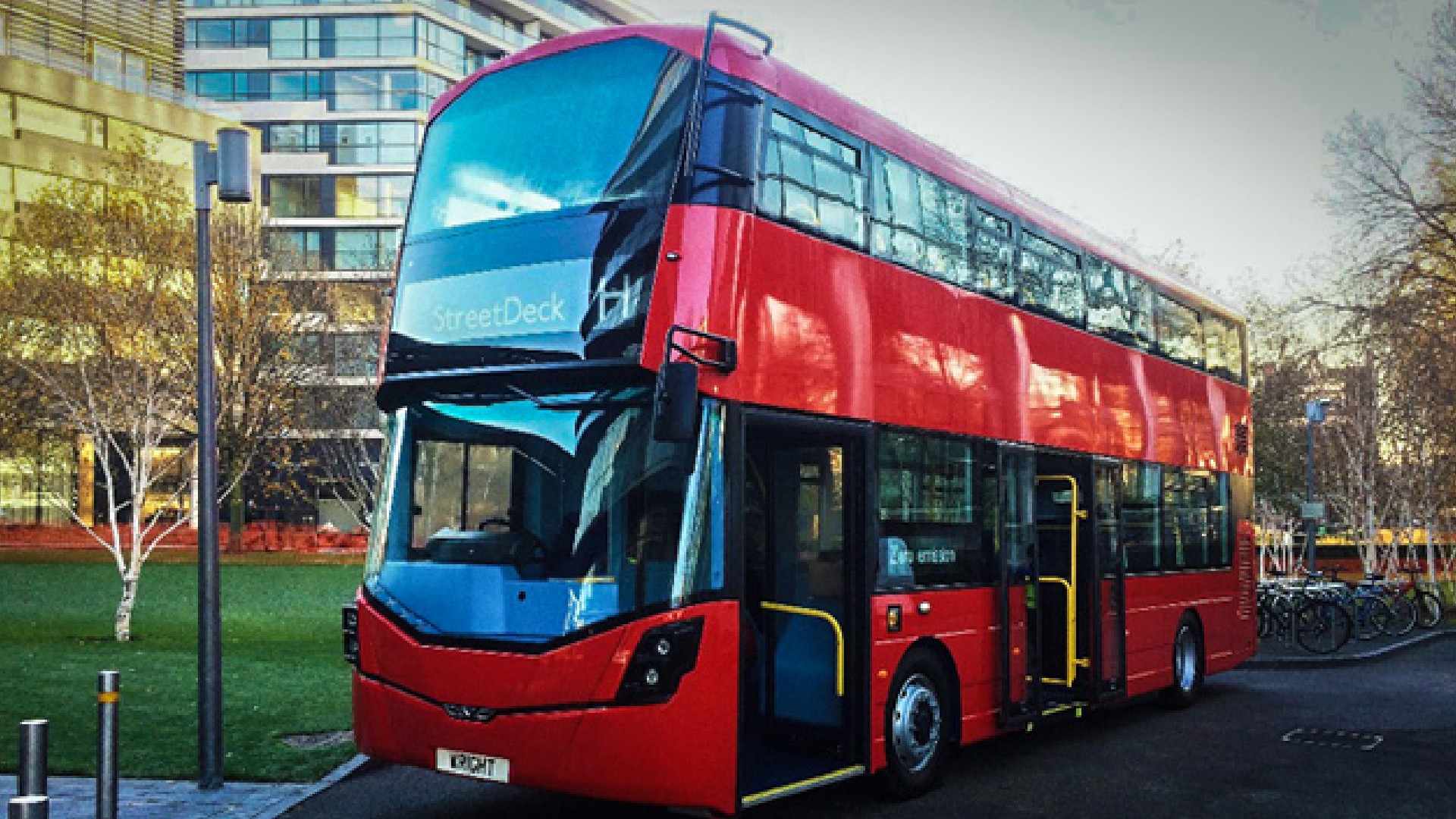London has launched England’s first hydrogen-powered double-decker buses as part of the city’s efforts to electrify and decarbonize its transport system.
The London city mayor Sadiq Khan launched twenty hydrogen-powered buses as part of the city’s zero-emissions initiative. As London seeks to replace all of its existing buses with zero-emission models, the buses will join some 500 electric buses currently in service in the city. In 2037, London plans to start using zero-emission buses. By 2030, the plan will be even faster. The new hydrogen fuel cell double-decker buses will be introduced starting on route 7 between East Acton and Oxford Circus.
Unlike conventional energy sources such as petrol and diesel, hydrogen used in a fuel cell is free from harmful emissions. Its only by-product is water from the chemical reaction of hydrogen with oxygen from the air. Electricity generated by this process powers the bus.

As a result of this milestone, air quality in London and the health of Londoners are expected to be improved since nitrogen oxide levels will be reduced. Additionally, passengers will enjoy smoother, quieter journeys due to fewer vibrations. For the project to be launched, Danish company Wrightbus was responsible for manufacturing the buses in Northern Ireland. At the same time, Air Liquiede will produce hydrogen for the buses in Runcorn. Ryze Hydrogen is accountable for hydrogen transportation, while Nel Hydrogen developed the charging stations to refuel in five minutes. Plans are to convert the hydrogen to green from 2023 using an electrolyzer powered by an offshore wind energy farm.
Government agency Transport for London provided £6 million ($8.3 million) in funding for the project, which was coupled with £5 million ($6.9 million) secured from the Fuel Cells and Hydrogen Joint Undertaking, and the Innovation and Networks Executive Agency and £1 million ($1.3 million) from the Office of Zero-Emission Vehicles.
The buses were procured through the Joint Initiative for Hydrogen Vehicles across Europe (JIVE) in bulk with other UK authorities. In total, the JIVE project aims to deploy 139 new zero-emission fuel cell buses and associated refueling infrastructure across five European countries.
With Government support, TfL could accelerate its plan to switch to a zero-emission fleet of buses by 2037 or 2030 to address the public health emergency caused by dirty air.
Sadiq Khan, Mayor of London, said: “We have made real progress in reducing air pollution in London, but we still have a long way to go because toxic air pollution still causes thousands of premature deaths a year and stunts the growth of children’s lungs.”. I’m therefore pleased to announce England’s first hydrogen double-decker buses, which do not produce any harmful emissions, will now go into service as part of our world-leading efforts.
By investing in hydrogen buses, we are reducing pollution in London and creating jobs and boosting the UK economy. This is a clear demonstration of how investment in new technology can fight air pollution and climate change and boost economic growth across the UK.
